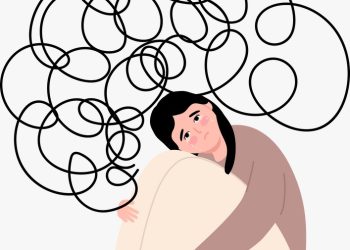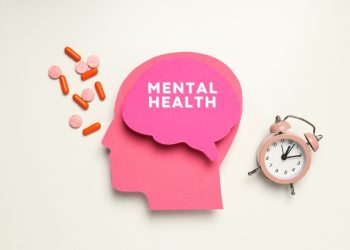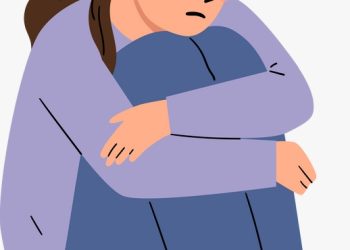
Hormones & Mental Health: What Every Mum Should Know
By Veronica Carpio, Features Editor, The Wellness Collective
No one really warns you that you might cry if your tea is too hot. Or that one day you might feel like you could conquer the world and the next like you were slowly vanishing inside it. The emotional rollercoaster of motherhood isn’t just about sleepless nights and toddler tantrums. It’s also about hormones — those invisible architects of our mood, energy, and identity — quietly shaping our mental health from pregnancy to postpartum and beyond.
Living in the UAE, where motherhood is often celebrated but mental health still whispers behind closed doors, I’ve seen many women — myself included — navigating the hormonal storm alone, unsure whether what they’re feeling is “normal.” So let me say this: if you’ve ever felt emotionally overwhelmed as a new mum, you are far from alone. And you are not weak. You are, quite possibly, hormonal.
Let’s break it down.
The Pregnancy High (and Crash)
During pregnancy, many women experience a cocktail of estrogen and progesterone so powerful it can feel like an emotional rollercoaster. For some, it’s a dreamy glow and a burst of productivity. For others, it’s anxiety, weepiness, or rage that seems to come from nowhere.
I remember when a year ago I met a friend of mine who was seven months pregnant and sobbing because she had forgotten to bring her reusable water bottle. It felt ridiculous at the time, but hormones like oxytocin and cortisol were having a tug-of-war in her brain. Turns out, there’s science behind those tears.
Estrogen and progesterone — key players during pregnancy — rise rapidly to support fetal development. But when these hormone levels drop dramatically after birth, it can trigger mood shifts, anxiety, and even postpartum depression. In fact, up to 1 in 5 new mothers experience postpartum depression, and many more go undiagnosed.
The Postpartum Dip — And Why It’s Not Just the “Baby Blues”
The first few weeks after childbirth are a haze. You’re feeding around the clock, learning how to be someone’s everything, and somehow still expected to “bounce back.” In the UAE, where there’s a strong emphasis on family, modesty, and resilience, many women feel pressured to keep up appearances — smiling through what may be serious emotional distress.
The so-called “baby blues” — which affect up to 80% of new mothers — usually pass within two weeks. But when low moods linger, we’re talking about something deeper. And hormones are only part of the story.
Sleep deprivation disrupts cortisol (our stress hormone) regulation. A lack of social support can suppress oxytocin — the bonding hormone. And in many cases, thyroid imbalances (which are more common post-birth than we think) can mimic symptoms of depression and anxiety. Yet many women never get tested, never seek support, and never talk about it.
Why? Because too often, we’re told to be grateful, not grieving. To feel blessed, not broken. But we can be both — and still be good mothers.
Hormones Beyond the First Year
Here’s the part no one tells you: hormone imbalances don’t end with the “fourth trimestre.” Many women face ongoing fluctuations due to breastfeeding, sleep disruption, or the return of menstrual cycles. Polycystic Ovary Syndrome (PCOS), thyroid issues, or perimenopause can sneak in, affecting mood, metabolism, and mental health.
In the UAE, where extreme heat, vitamin D deficiency, and a fast-paced lifestyle can all impact hormonal balance, it’s even more important to tune into our bodies and ask: is this just stress — or is it hormonal?
So What Can We Do?
- Test, Don’t Guess: Work with a trusted GP or hormone specialist to understand what’s really happening in your body. Clinics across Dubai and Abu Dhabi now offer advanced hormone panels specifically tailored for postpartum women.
- Talk About It: Mental health isn’t a taboo — it’s a pillar of wellness. There’s power in opening up, whether to a family member, a friend or a therapist.
- Rebuild from the Inside Out: Nutrition, sleep, and gentle movement are not luxuries — they’re lifelines. Hormone-friendly practices like yoga, magnesium supplementation, or reducing processed sugar can make a huge difference.
- Create a Community: We weren’t meant to mother alone. Whether it’s online support groups or wellness communities like The LightHouse Arabia or The Hundred Wellness Centre, there are spaces in the UAE that offer real, compassionate support.
Motherhood will always be transformative — physically, emotionally, hormonally. But we deserve to understand what’s happening to us, and to feel empowered in the process.
Hormones are not our enemies. They are the messengers of change, the invisible forces that guide us through life’s biggest transitions. The more we learn to listen to them — and talk openly about how they affect our mental health — the more whole, well, and connected we become.
To every mum out there quietly wondering, “Is it just me?” — no, it’s not. And yes, it will get better.
Related post







